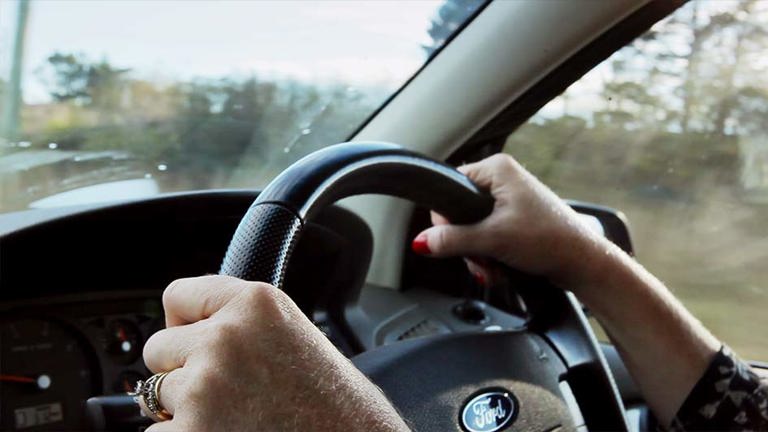Attention car lovers: If you’re thinking of making a statement with some eye-catching custom car modifications, there are a couple of things you might want to consider first.
While shiny alloy wheels, custom-tinted windows, a sunroof or extra horsepower in your engine might add personality to your car, these features – if they’re added after the car leaves the factory – might also make modified car insurance worth considering.
Not only that, some vehicle modifications might also be subject to state and territory laws, with specific guidelines and standards in place to ensure your modified vehicle is suitable for safe use.
What does ‘modified’ actually mean in car insurance?
At Youi, we define a vehicle modification as “changes from the manufacturer’s specifications, made to the car at any time after it left the factory where it was built”.
So basically, a modification is when alterations are made to the manufacturer’s standard body, engine, suspension, wheels or paintwork of your car. These changes are usually made to alter your car’s appearance, handling or performance.
But it’s worth remembering not all modifications are purely cosmetic, nor are they exclusively the domain of car enthusiasts looking for some extra engine grunt.
Vehicles might also be modified for safety purposes – particularly for people living with or caring for a person with a disability.1
What are some examples of car modifications?
Modifications don’t necessarily have to be huge changes – in fact, you might be surprised about what actually constitutes a modification.
Window tinting, alloy wheels, a new audio system, custom paint, spoilers or sports seats can all be considered modifications if they’re added after a vehicle leaves the factory. When it comes to mechanical changes, we’re talking higher-performance brakes, a new exhaust system, turbochargers or superchargers – just to name a few.
Disability modifications might include lifts, ramps, a left foot accelerator, joystick control, an electronic clutch or foot steering.
How do modifications affect my car insurance?
If you’re planning to modify your vehicle, there are certain modified car insurance issues you might want to be aware of.
“Modifying your vehicle can increase your premium if it increases the value of the car,” explains Marni Jackson, Youi Head of Product – Vehicle.
Some minor modifications, such as tinted windows, may be covered provided they’re legal in your state or territory. However, it’s worth making your insurer aware of all after-market alterations as they may cost more to repair, and might increase your car insurance premium as a result.
“For example, a car can be modified to accommodate a wheelchair and these disability modifications can be expensive, so therefore they might increase the overall value of the vehicle being insured,” says Jackson.
Another example is if your vehicle has a custom paint job and bumper and is involved in an insurable incident that results in front-end damage. On a standard vehicle, quotes for this kind of work can usually be given quickly at a standard rate. However, depending on the custom modifications to the car, the costs for this type of work could increase dramatically.
This is also true in the case of mechanical improvements to a vehicle, such as suspension, exhaust, engine or braking systems. These systems can typically mean your vehicle will cost more to fix in the case of a serious accident that requires more than cosmetic work.
If you’re considering modifying your car with add-ons, you might want to think about the cost to replace these improvements if anything goes wrong.
At Youi, with our Comprehensive and Third Party Fire & Theft policies, we may insure vehicles that have been legally modified to improve performance or handling, provided you tell us about these modifications and we agree on any specific amounts that are applicable.2
What happens if I don’t tell my insurer about modifications to my car?
Not all modifications are automatically covered, so it’s important you tell your insurer if you modify your car in case your existing policy doesn’t cover you. In the event you need to make a claim, this could present an issue.
“Using the example earlier about disability modifications, you may need to advise of an additional amount to cover the accessories and modifications as well,” says Jackson.
How do I know if my modification is legal?
A modification such as a custom paint job probably won’t cause many problems in terms of legality, but any modifications outside what’s considered legal in your state or territory might mean your car cannot be properly insured.
In New South Wales,3 if you have a modified vehicle, you’ll need to get it certified before you can apply for registration. While in Queensland, modification plans may need to be reviewed and approved before the modification is made.4
If you’re thinking of modifying your car, it’s best to check with your state or territory government about requirements and guidelines:
- Australian Capital Territory5
- New South Wales3
- Northern Territory6
- Queensland4
- South Australia7
- Tasmania8
- Victoria9
- Western Australia10
Younger drivers and car add-ons
Younger drivers might want to modify their vehicle for speed and looks. However, insurance for younger drivers with provisional licences could be affected or even denied because of certain custom add-ons.
In NSW,11 Queensland,12 SA13 and Victoria,14 P-platers are banned from driving certain high-powered or sports modified cars.15
If you’re insuring a younger driver for a modified car, it’s worth checking whether they can legally drive it.
Despite the costs that can come with custom modifications, the appeal of a unique vehicle with extra features is worth it to many car lovers. While many standard modifications are fine from a legal standpoint, it’s always worth checking the laws in your state or territory, and disclosing any and all add-ons to your insurance company in case they’ll affect your cover.
To learn more about our car insurance, including coverage options, visit our car insurance page.
1 Source: NDIS – Vehicle modifications and driving supports, 2023
2 Exclusions, limits and additional fees may apply. For more details, see our Car Insurance PDS
3 Source: NSW Government – Modified and non–standard vehicles
4 Source: Qld Government – Vehicle modifications
5 Source: ACT Government – Light vehicle modifications in the ACT
6 Source: NT Government – Approval processes for modifications
7 Source: SA Government – Vehicle standards and specifications
8 Source: Tas Government – Modification inspections
9 Source: Vic Government – Vehicle standards information
10 Source: WA Government – Modify or construct a vehicle
11 Source: NSW Government – P1 & P2 drivers
12 Source: Qld Government – Provisional licence restrictions
13 Source: SA Government – High powered vehicles
14 Source: Vic Government – About prohibited vehicles
15 Source: Drive – What cars can P-platers drive in Australia?, 2023





